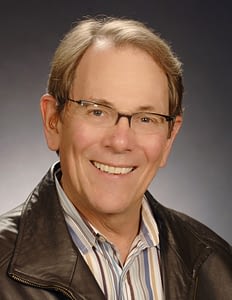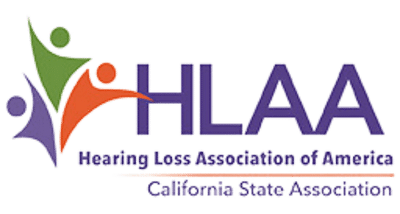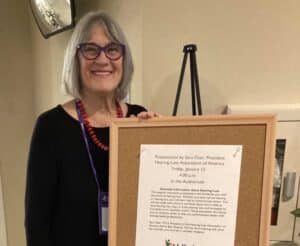By John Waldo
 Most health-insurance policies exclude coverage for hearing aids. A case in federal court in Seattle may change that. In 2017, two hearing-aid users sued Kaiser in Seattle, asking that the exclusions be invalidated as violating anti-discrimination provisions in both the ACA/Affordable Care Act/Obamacare and Washington State law. Kaiser argued that the exclusion is not discriminatory because it applies both to people with disabling hearing loss and to people whose hearing loss is non-disabling. The trial court agreed and dismissed the case. The plaintiffs appealed to the Ninth Circuit Court.
Most health-insurance policies exclude coverage for hearing aids. A case in federal court in Seattle may change that. In 2017, two hearing-aid users sued Kaiser in Seattle, asking that the exclusions be invalidated as violating anti-discrimination provisions in both the ACA/Affordable Care Act/Obamacare and Washington State law. Kaiser argued that the exclusion is not discriminatory because it applies both to people with disabling hearing loss and to people whose hearing loss is non-disabling. The trial court agreed and dismissed the case. The plaintiffs appealed to the Ninth Circuit Court.
The Ninth Circuit upheld the dismissal, but left the door wide open. In a case titled Schmitt v. Kaiser Foundation Health Plan of Washington, https://cdn.ca9.uscourts.gov/datastore/opinions/2020/07/14/18-35846.pdf, the Court acknowledged that prior to the adoption of the ACA, insurers were free to exclude many kinds of treatments and devices so long as the benefits the insurer chose to offer were available to everyone. But the Court said the ACA changed that. It said that a categorial exclusion of all treatment for hearing loss would likely be illegal, but that if cochlear implants, which Kaiser does cover, “adequately serve the needs of hearing disabled people as a group,” then excluding hearing aids might not be impermissible disability discrimination.
The Ninth Circuit then sent the case back to the trial court with instructions to essentially give the plaintiffs another chance to make their argument, and provided some guidance as to what kind of showing might be required. (I joined the plaintiffs’ legal team at that point). The opinion said the plaintiffs might prevail “by alleging facts showing how the needs of hearing disabled persons differ from the needs of persons whose hearing is merely impaired such that the exclusion is likely to predominately affect disabled persons.”
The critical issue in this case is determining which people with hearing loss meet the legal definition of “disabled,” and which do not. The ACA borrows the definition of “disability” from the Americans with Disabilities Act, namely, an “impairment that limits a major life activity” of the individual. Major life activities include hearing, communicating, working and learning, among others. Our argument is simply that virtually nobody gets hearing aids until and unless that person has experienced limitations to activities that are important enough to them to overcome the deterrents to hearing-aid use, not the least of which is the need to pay out of pocket for the hearing aids. Therefore, we argue that denying coverage for hearing aids almost exclusively affects people with a legally defined “disability.”
Kaiser hasn’t indicated yet that it disagrees with those facts. Rather, it offers a different definition of hearing disability based solely on the degree of impairment measured by standard hearing tests. Figuring out what the law requires is a job for judges, and are usually decided by both sides filing briefs supporting their position, and then sometimes oral argument before the judge. Those briefs are due July 7.
What Does This Have to Do with California?
In many ways, this is the critical question given the size of the California market, but it can’t really be answered at this point. A decision that the exclusion violates Washington State law wouldn’t have much impact at all in California. If the case is settled, as most cases are, with Kaiser agreeing to drop the exclusion in Washington, then the settlement wouldn’t have any legal effect in California, but might persuade Kaiser that it would be less expensive to simply offer coverage in California than to fight the same battle again and hope for a different outcome.
If a federal judge in Seattle rules that the hearing-aid exclusion violates federal law, federal courts in California may or may not find the judge’s reasoning persuasive – they are not bound by that outcome. But if that were to happen and Kaiser were to appeal to the Ninth Circuit and lose, then the decision would also be the law in California since it is part of the Ninth Circuit.
John Waldo is an attorney in Houston TX whose practice focuses on advocacy for people with hearing loss. He is national Advocacy Committee Chair for the Association of Late Deafened Adults (ALDA), and consults with non-profit advocacy groups in Washington and Oregon. He can be reached at: johnfwaldo@hotmail.com


